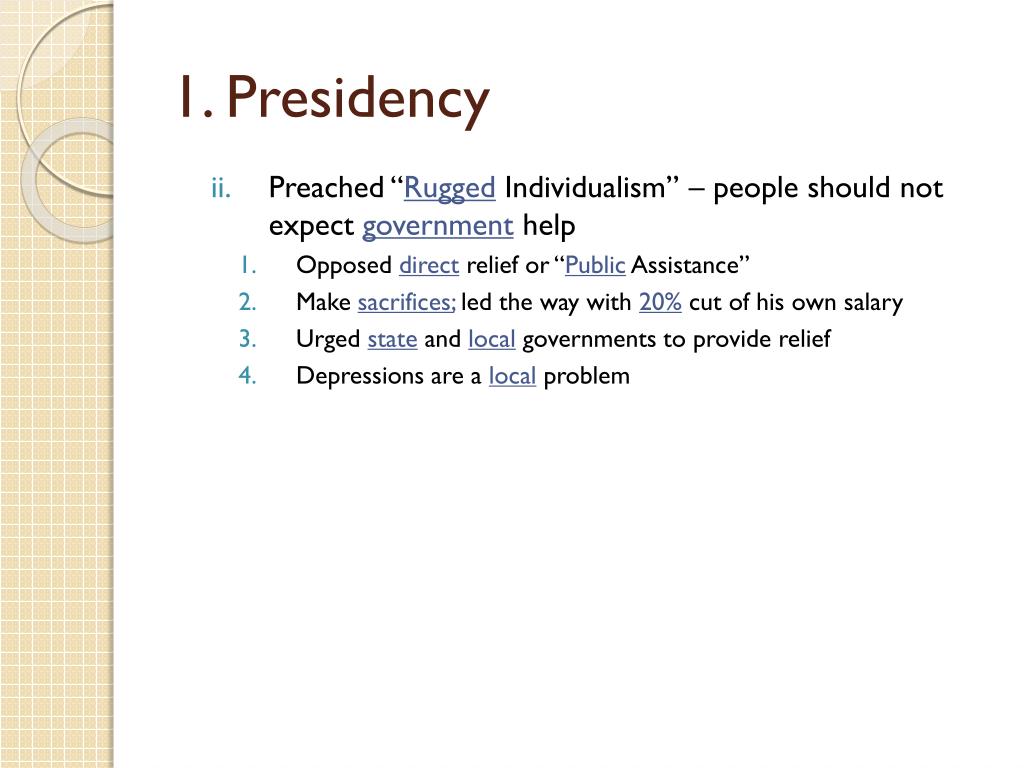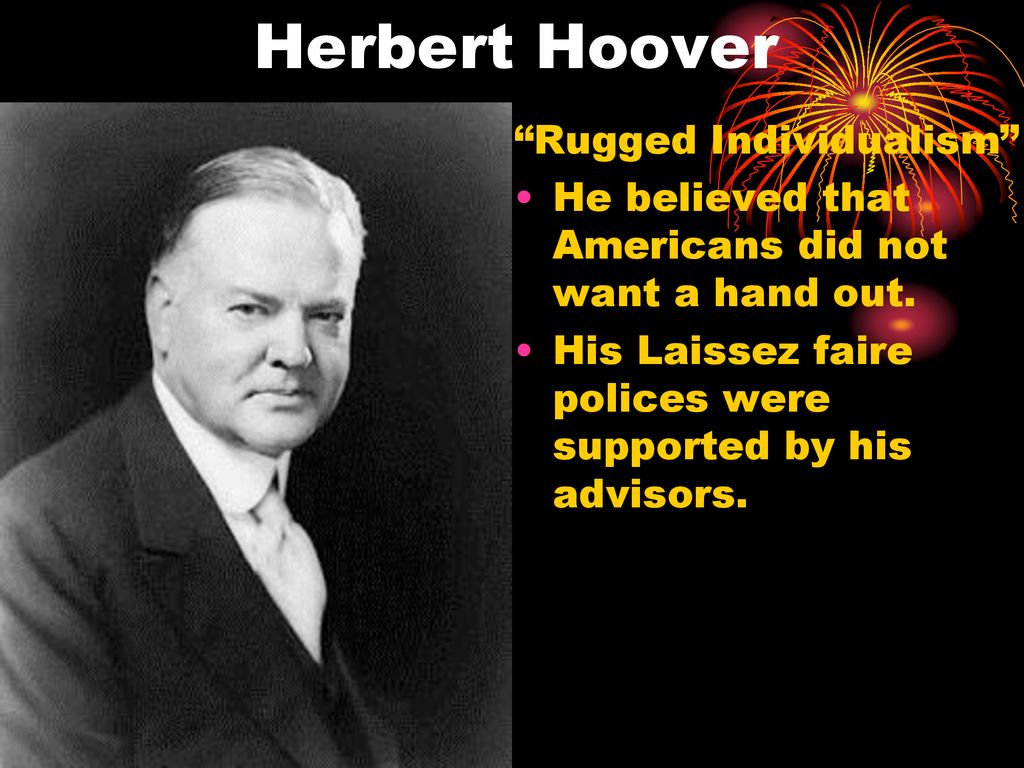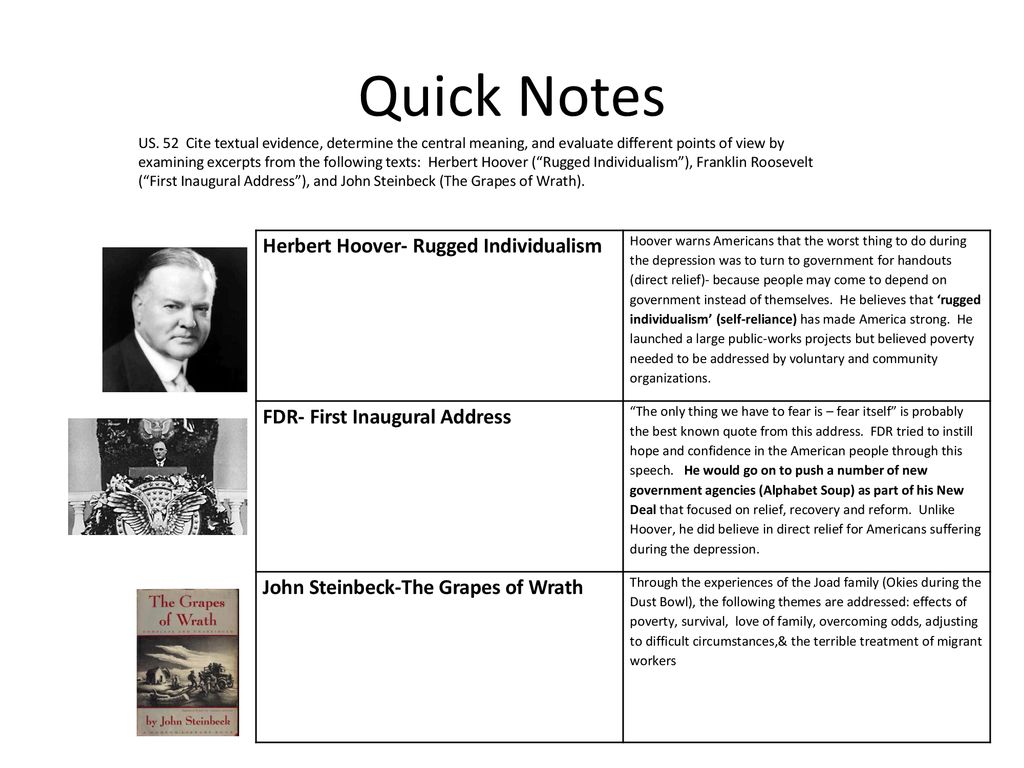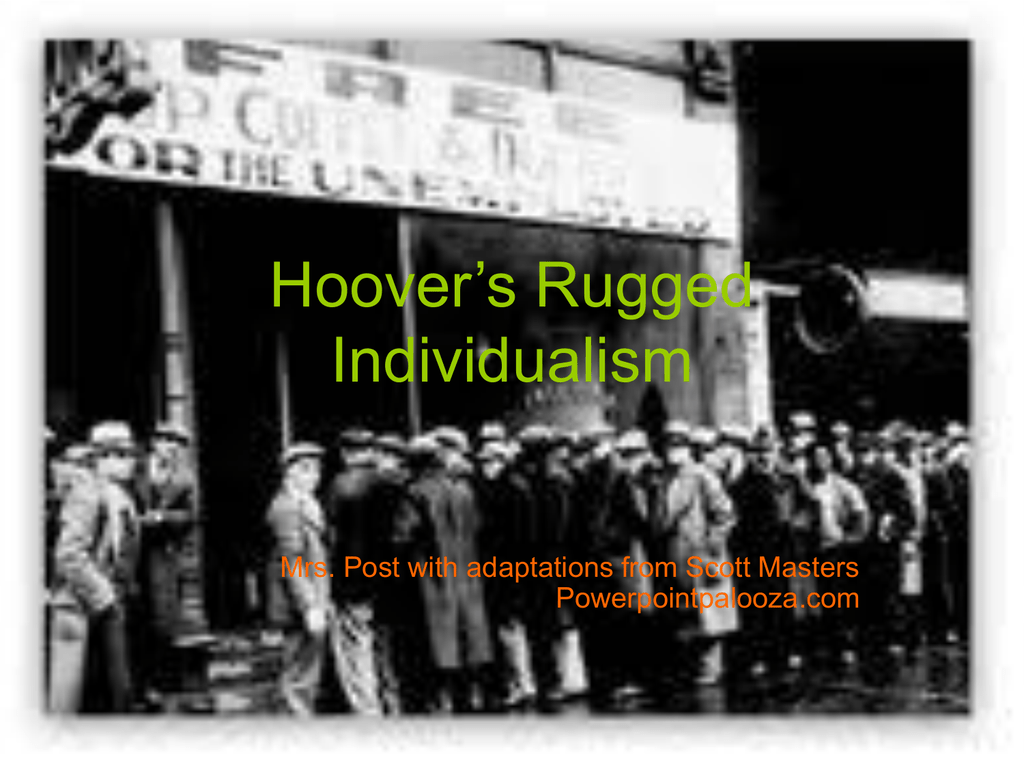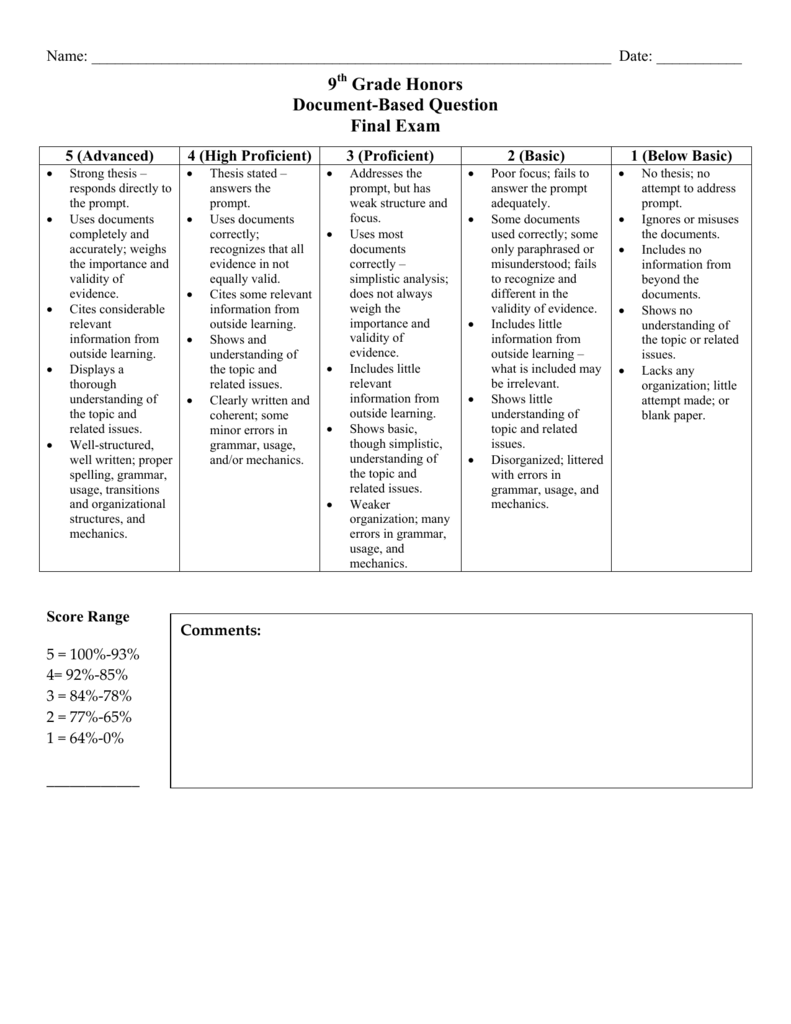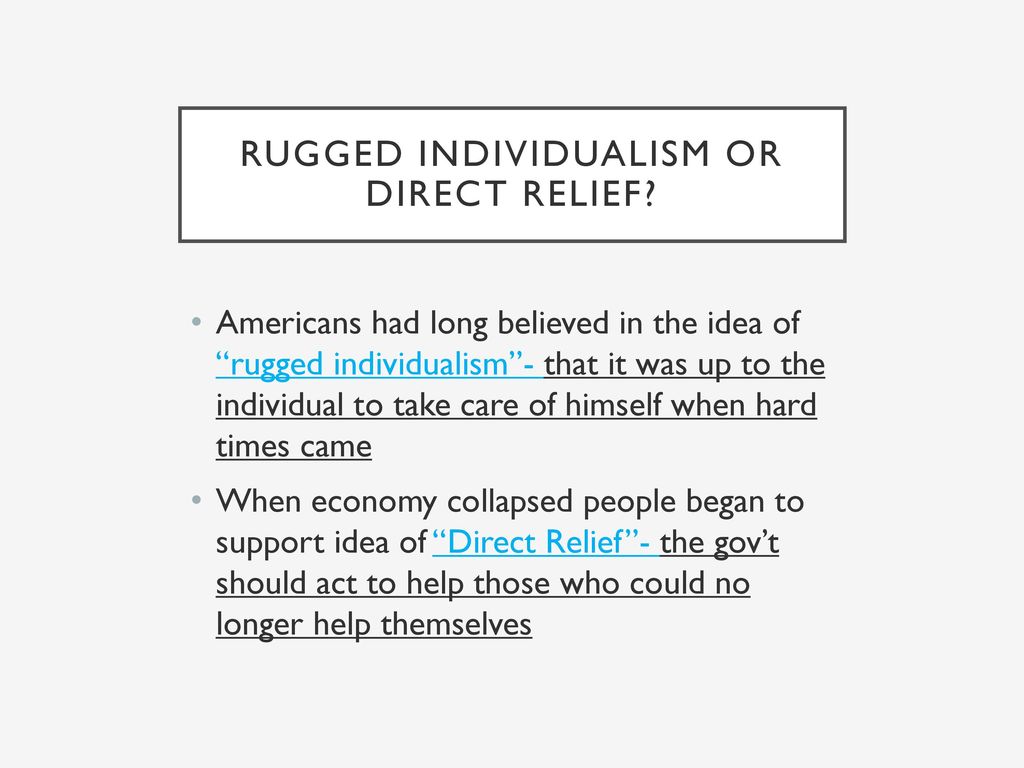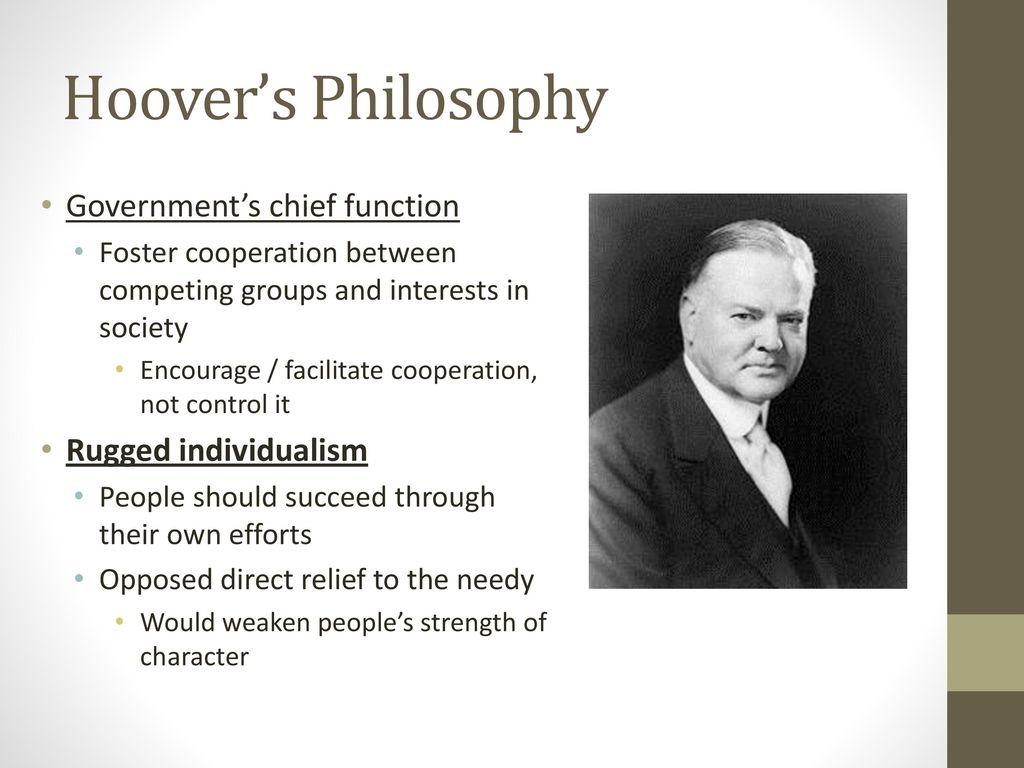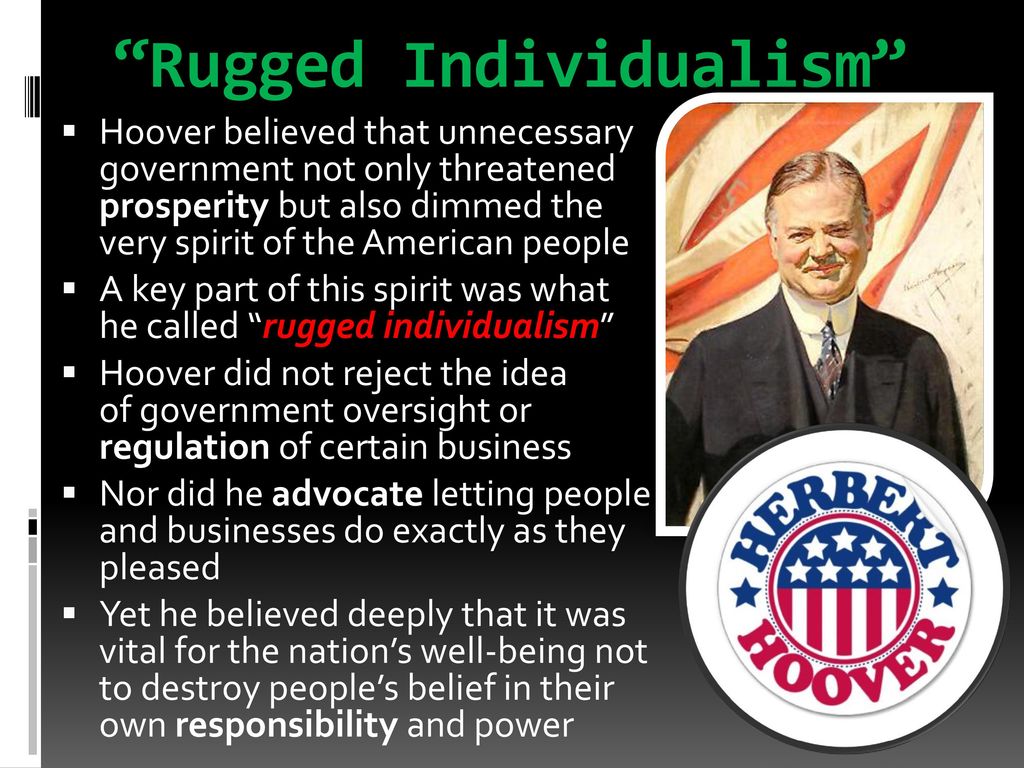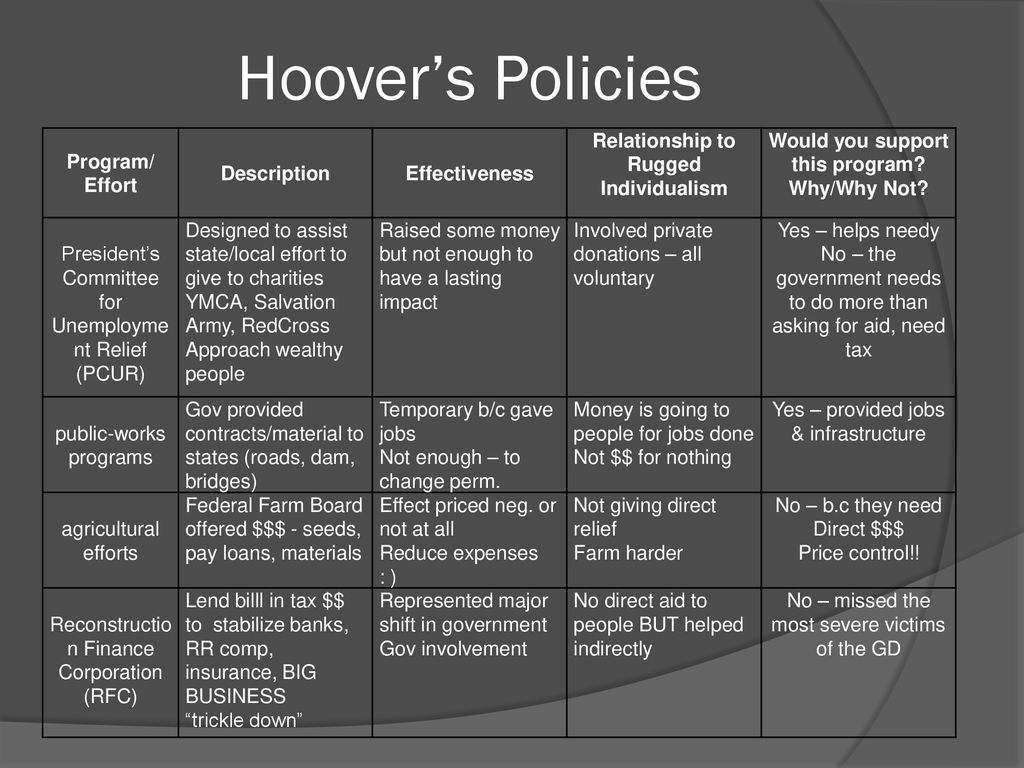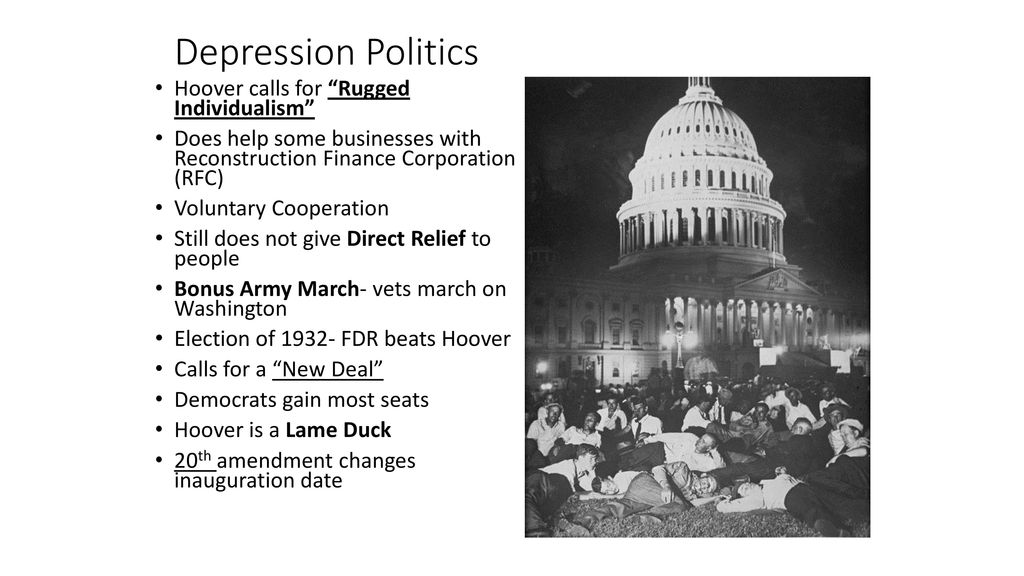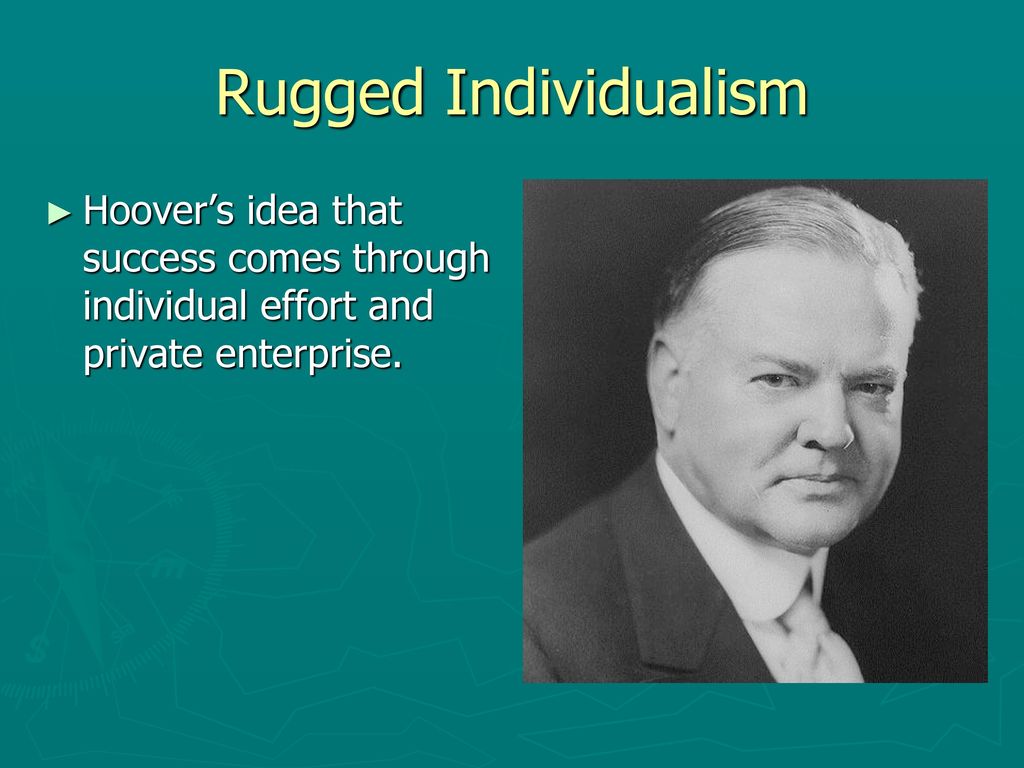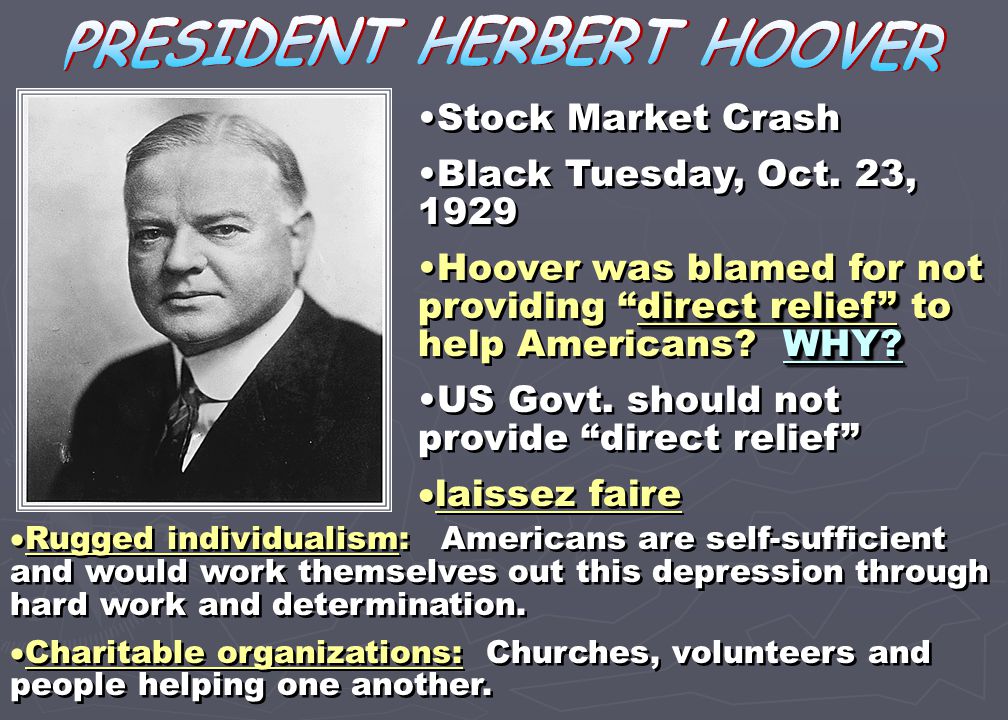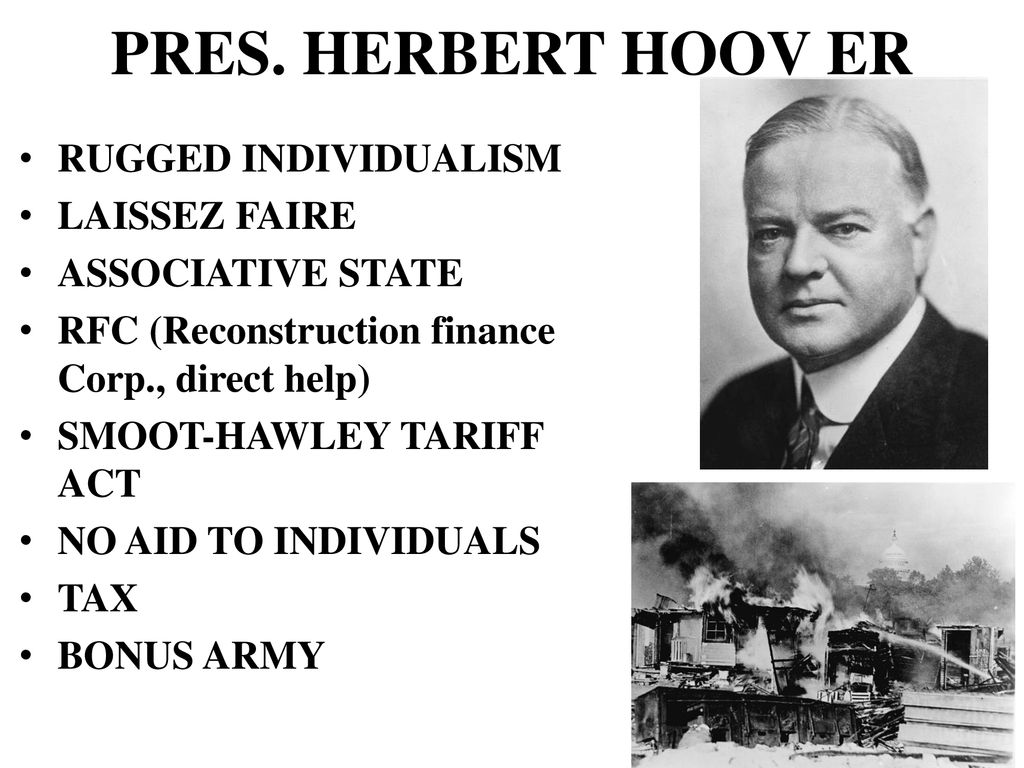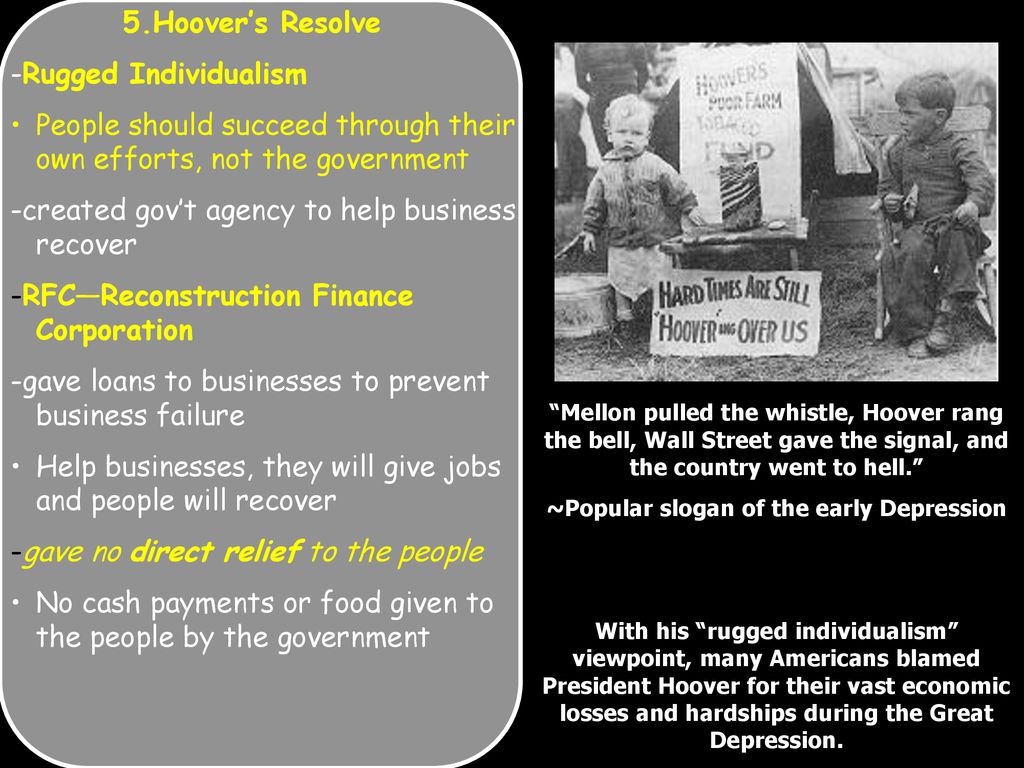Hoover s first response was to reject direct relief believing any sort of welfare would undermine american moral character and the ideal of rugged individualism.
Rugged individualism vs direct relief.
Created several programs that provided relief security and protection to businesses average americans and unions during the great.
Rugged individualism was the phrase used often by herbert hoover during his time as president it refers to the idea that each individual should be able to help themselves out and that the government does not need to involve itself in people s economic lives nor in national economics in general.
Fdr and the liberals believed that the powers of the federal government should be.
Hoover stood fast in his refusal to provide food resisting any element of direct relief.
Money or food given directly from the gov.
In 1930 1931 it attempted to pass a 60 million bill to provide relief to drought victims by allowing them access to food fertilizer and animal feed.
Rugged individualism no direct federal relief private charities depression would fix itself.
Belief that all people can succeed on there own without the help of the goverment.
It refers to a belief that individuals can succeed with minimal.
Aided large corporations vetoed federal relief bill urged local charity cooperation.
Calls to break down the federalism structure whether by strengthening executive power or turning to some kind of parliamentary system or allowing the courts to take over our social and economic decisions are a kind of declaration of war against.
Giving money to buisnesses to make jobs indirectly trying to help people.
Rather they believed relief efforts should be voluntary and conducted at the local level.
Rugged individualism refers back to a speech made by republican president herbert hoover in 1928 as his closing speech.
President during stock market crash who rejected the progressive emphasis on activist government to pursue a program of minimal business regulation low taxes and high tariffs.
Hoover and conservatives followed a path of rugged individualism in which the federal government should steadfastly avoid direct relief to the poor and unemployed.
Encouraged businesses to regulate themselves his belief in rugged individualism kept him from giving people direct relief during the great depression.
People should solve their own problems.
So rugged individualism even today relies on that very constitutional system for protection.
Rugged individualism where people should be self reliant.
Relief the gov t will give direct help to those who are suffering by means of food clothing shelter.
